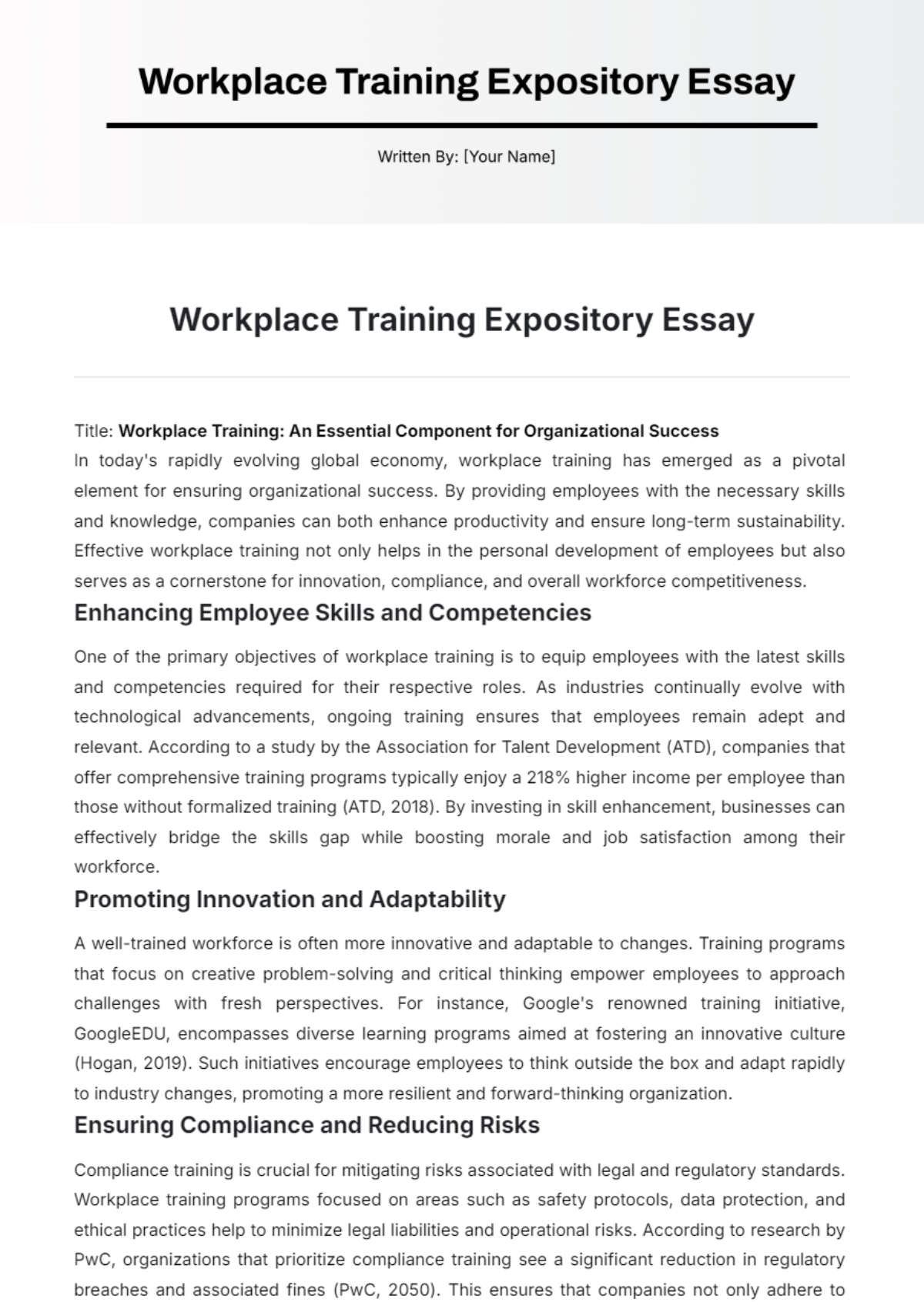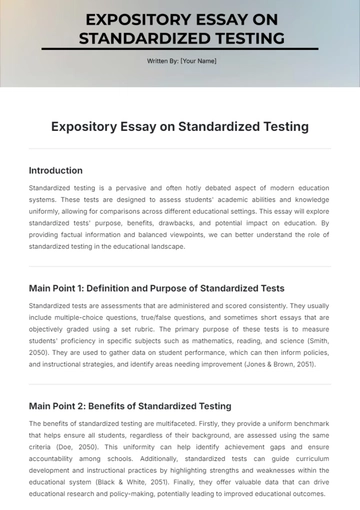Free Workplace Training Expository Essay

Title: Workplace Training: An Essential Component for Organizational Success
In today's rapidly evolving global economy, workplace training has emerged as a pivotal element for ensuring organizational success. By providing employees with the necessary skills and knowledge, companies can both enhance productivity and ensure long-term sustainability. Effective workplace training not only helps in the personal development of employees but also serves as a cornerstone for innovation, compliance, and overall workforce competitiveness.
Enhancing Employee Skills and Competencies
One of the primary objectives of workplace training is to equip employees with the latest skills and competencies required for their respective roles. As industries continually evolve with technological advancements, ongoing training ensures that employees remain adept and relevant. According to a study by the Association for Talent Development (ATD), companies that offer comprehensive training programs typically enjoy a 218% higher income per employee than those without formalized training (ATD, 2018). By investing in skill enhancement, businesses can effectively bridge the skills gap while boosting morale and job satisfaction among their workforce.
Promoting Innovation and Adaptability
A well-trained workforce is often more innovative and adaptable to changes. Training programs that focus on creative problem-solving and critical thinking empower employees to approach challenges with fresh perspectives. For instance, Google's renowned training initiative, GoogleEDU, encompasses diverse learning programs aimed at fostering an innovative culture (Hogan, 2019). Such initiatives encourage employees to think outside the box and adapt rapidly to industry changes, promoting a more resilient and forward-thinking organization.
Ensuring Compliance and Reducing Risks
Compliance training is crucial for mitigating risks associated with legal and regulatory standards. Workplace training programs focused on areas such as safety protocols, data protection, and ethical practices help to minimize legal liabilities and operational risks. According to research by PwC, organizations that prioritize compliance training see a significant reduction in regulatory breaches and associated fines (PwC, 2050). This ensures that companies not only adhere to legal requirements but also build a culture of integrity and responsibility.
In conclusion, workplace training is indispensable for fostering skill development, promoting innovation, and ensuring compliance within organizations. By continually investing in the professional growth of employees, businesses can secure a competitive edge and achieve long-term success. It is imperative for contemporary organizations to implement robust training programs as part of their strategic initiatives.
- 100% Customizable, free editor
- Access 1 Million+ Templates, photo’s & graphics
- Download or share as a template
- Click and replace photos, graphics, text, backgrounds
- Resize, crop, AI write & more
- Access advanced editor
The Workplace Training Expository Essay Template, offered by Template.net, provides a comprehensive and structured format to help you craft effective essays on workplace training. This customizable, downloadable, and printable template streamlines your writing process, allowing you to focus on key points. It is also editable in our AI Editor Tool, ensuring you can tailor the content to meet specific requirements with ease. Perfect for students, educators, or professionals.





























